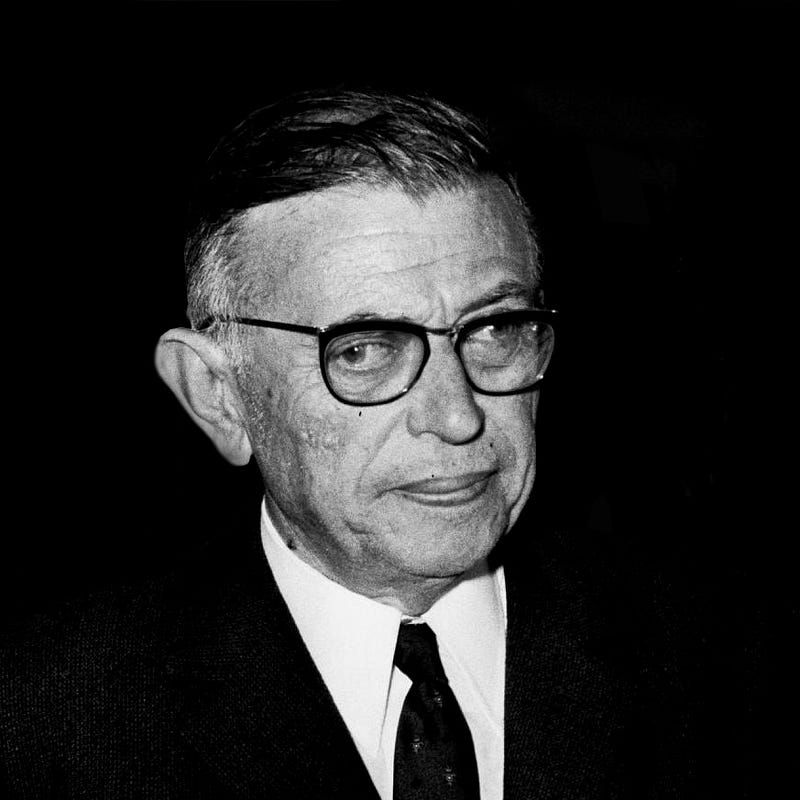Exploring the Intriguing Links Between Physics and Philosophy
Written on
Chapter 1: The Interplay of Physics and Philosophy
In this post, we delve into the surprising intersections that exist between physics and philosophy, particularly focusing on the concept of time. One notable intersection is the debate surrounding determinism. Proponents of determinism assert that the future is already set in stone and that free will is merely an illusion. This perspective has been contested by thinkers like Jean-Paul Sartre, who advocate for the existence of free will, positing that individuals are accountable for their choices. Additionally, time has been a central topic of discussion in both disciplines, with philosophers pondering its essence while physicists propose theories concerning its measurement and progression.

The Nature of Causality
Another profound connection between physics and philosophy is the study of causality—the link between cause and effect. Philosophers often debate whether a cause is essential or merely sufficient for its effect. Meanwhile, physicists investigate the causal relationships that govern events in the universe. This discourse is especially pertinent to discussions on free will, as determinists argue that our actions are governed by forces beyond our control.
The Complexity of Causality
Causality, at its core, is about the relationship between an event (the cause) and its outcome (the effect). Generally, a cause is an occurrence that triggers an effect, with the effect being the result of that cause. Causality is typically analyzed through the lens of temporal order—where the cause must occur before the effect, a principle known as causal precedence. Philosophical debates often arise around whether a cause must invariably lead to its effect or if it’s enough for the cause to exist for the effect to happen.
For instance, when I drop a ball, its descent to the ground is both a necessary and sufficient condition for it to hit the surface—gravity ensures that the ball will fall. However, not all causative instances are straightforward. There are scenarios where a cause may be essential yet insufficient for its effect. For example, to see in a dark room, I must turn on a light, but simply activating the light switch isn't enough if there are obstacles blocking the light's path. Conversely, a cause can be sufficient but not essential—walking can get me from point A to point B, but there are alternative methods, such as taking a bus or driving.
Special Relativity and Causation
The implications of special relativity on causation are profound. In classical Newtonian physics, causation was clear-cut: event A causes event B if A precedes B in time and there exists a physical link between them. However, special relativity introduces the idea that there is no universal time frame; instead, each observer experiences their own "proper time." This raises questions about how we can determine causation in a reality where simultaneity is not absolute but varies with the observer.
The challenge lies in the fact that two events perceived as simultaneous by one observer may not be so for another. This observer-dependence leads to significant philosophical dilemmas regarding causation.
Quantum Mechanics and Determinism
Quantum mechanics further complicates our understanding of causation. In classical physics, causation is deterministic: knowing the state of a system allows us to predict its future state with certainty. However, quantum mechanics introduces elements of randomness and uncertainty, suggesting that even with complete knowledge of a quantum system's causal factors, precise predictions remain elusive. This inherent unpredictability reshapes our comprehension of causation, implying it may be more about probabilities and chance rather than absolute deterministic relationships.
Albert Einstein famously remarked that God does not play dice with the universe, yet quantum mechanics implies otherwise when it comes to causation.
Conclusion: Reflecting on Causation
The complexities of causation present a fascinating topic that weaves together threads of physics and philosophy. This post has highlighted some of the unexpected connections between these fields, particularly as they relate to the concepts of special relativity and quantum mechanics. As you ponder life's profound questions, consider that insights from physics might offer valuable perspectives. You may just uncover the answers you seek.
Do you have insights on the relationship between physics and philosophy? Share your thoughts in the comments. If you enjoyed this exploration, check out our other articles on simplesalad.ghost.io! Thank you for reading!
This video titled "What is a 'Cause,' and Why Does it Happen Before the Effect?" by Carlo Rovelli discusses the intricate relationship between causality and the flow of time, enriching our understanding of these concepts.
In this video, "The Arrow of Time in Causal Networks," the exploration of time's directionality and its implications for causation adds depth to our understanding of these philosophical and physical inquiries.